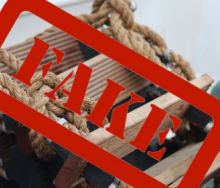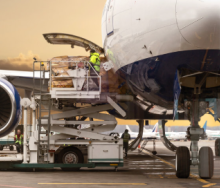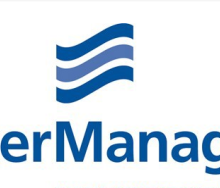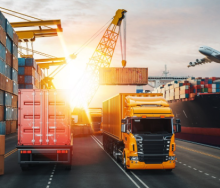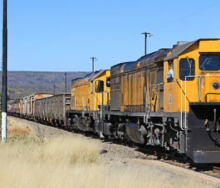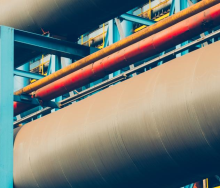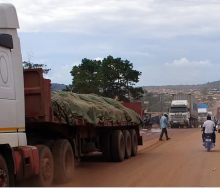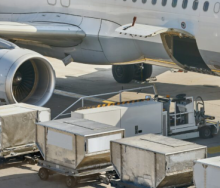As the year draws to a close, President Cyril Ramaphosa has reflected on South Africa’s achievements and challenges, expressing optimism for the year ahead in his weekly newsletter.
This year marked thirty years since the advent of democracy, and the country commemorated its progress in building a constitutional order rooted in freedom, equality, and human rights.
Among the highlights was South Africa’s seventh successful General Election, with 70 political parties contesting. The Electoral Commission was lauded for its efficient management of the polls, reflecting a maturing democracy.
“Our democracy has evolved and matured. We have a Government of National Unity comprising 10 political parties from across the political spectrum. They have agreed on three strategic priorities for this administration. The first strategic priority is to grow our economy and create jobs,” Ramaphosa said.
“The structural reforms initiated under the sixth administration are continuing to create conditions for our economy to grow and to create jobs.”
Efforts to grow the economy and create jobs have borne fruit, with over 250 days of uninterrupted power supply this year. This achievement was credited to improved maintenance by Eskom, increased renewable energy capacity, and widespread adoption of solar solutions.
“The work of the National Energy Crisis Committee continues. It is working to get more power on to the grid, expand our electricity infrastructure, diversify the market for the benefit of consumers, and lay the groundwork for an energy-secure future,” said Ramaphosa.
He added that the recovery of commuter and freight rail services also marked a turning point. Passenger rail saw a surge in usage, with 31 of 40 corridors operational and passenger numbers climbing to 40 million from 15 million in the previous year.
Ports in Durban and Cape Town also experienced operational improvements, further boosting economic activity.
“We are making progress in the recovery of freight rail and dealing with longstanding operational challenges in our ports. We are seeing improvements at the container terminals in Durban and Cape Town, as well as with infrastructure upgrades.”
Turning to poverty and the cost of living, the President noted a significant drop in consumer inflation, bringing down prices of essential goods, including food and fuel.
While unemployment levels remain extremely high, the President said more South Africans were finding jobs.
Government continued to sustain a substantial social wage, dedicating 60% of the national budget to social grants, subsidized housing, free basic services, and no-fee schools.
“These are the measures that reduce poverty and directly improve people’s lives. In addition to the provision of grants to vulnerable groups and unemployed people, this social wage includes subsidised housing, free basic services, no-fee schools and school nutrition. Government has been able to sustain these measures, even as public finances are under severe pressure,” Ramaphosa said.
He emphasised that the administration had worked to enhance government’s ability to deliver basic services, despite the challenges of poor governance and financial constraints in many municipalities.
“The third strategic priority of this administration is to strengthen the capacity of the State to deliver on its mandate. Our efforts to improve the capacity and capability of the state to deliver on basic services continue.”
Ramaphosa cited disruptions in the supply of electricity and clean water as a major problem in many municipalities. He added that many local councils were plagued by poor governance, limited capacity and severe financial constraints, which affected service delivery.
“These are the challenges we are grappling with. We have identified local government as a major focus in this administration. Through initiatives like the Presidential eThekwini Working Group, we are bringing all stakeholders together to solve local problems.”
While progress has been made, the President acknowledged persistent challenges.
Unemployment remains high, crime and violence are widespread, and service delivery disruptions are a major concern. However, he emphasised the importance of collaboration among government, business, labour, and civil society to address these issues.
“The progress we have made this past year and during the course of the previous administration shows that we can overcome the difficulties our country faces.
“As government, business, labour and civil society, we are able to achieve a great deal when work in unison to overcome our common challenges.”
Looking ahead, South Africa will host the G20 Summit in 2025, further positioning itself as a key player in addressing global challenges.
“In the new year, we will embark on a National Dialogue that will draw together all South Africans in crafting a common vision for the country,” added Ramaphosa.
Concluding his message, he expressed hope for 2025, vowing to build on the momentum of 2024.
“Overcoming poverty and underdevelopment, creating more jobs, and addressing societal ills like gender-based violence, requires that we must all play our part, where we can.
"On many fronts, this year has been better than the last. We will build on these achievements in 2025.” – SAnews.gov.za

